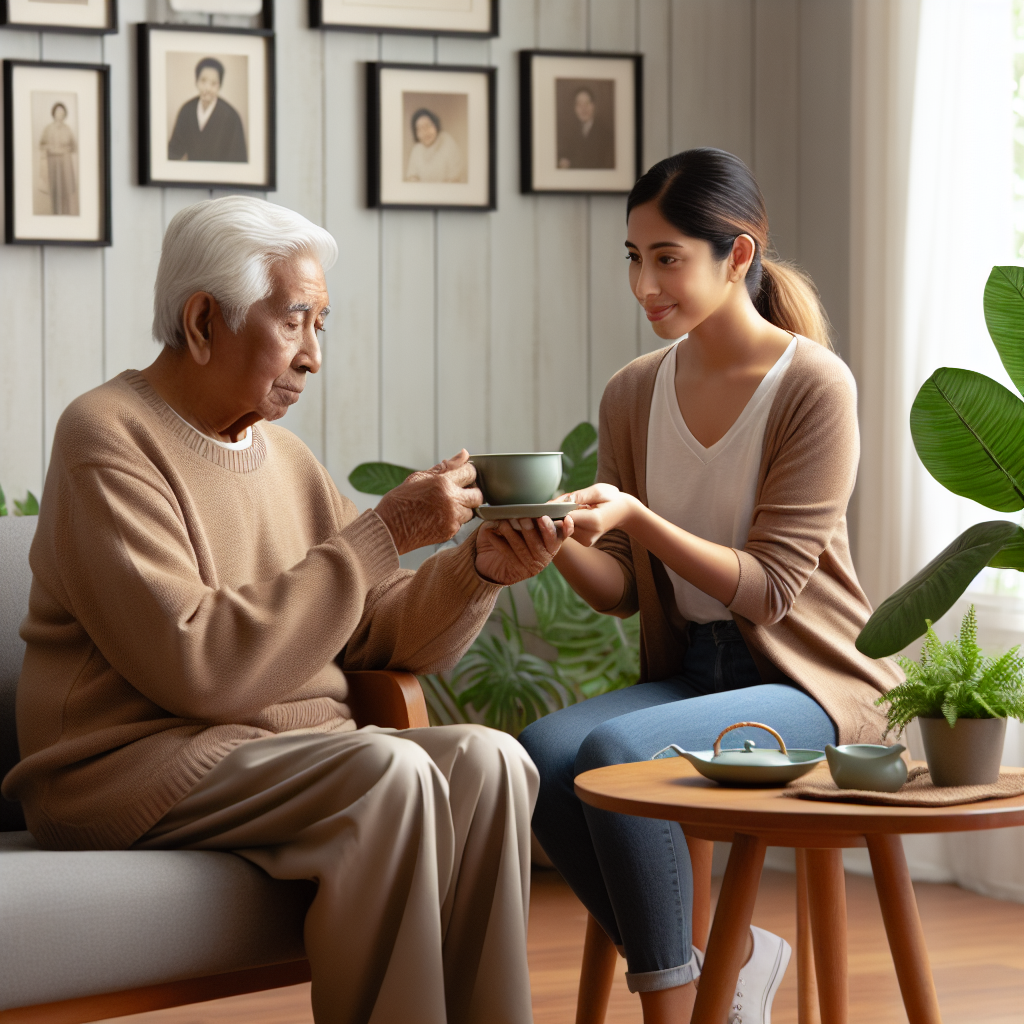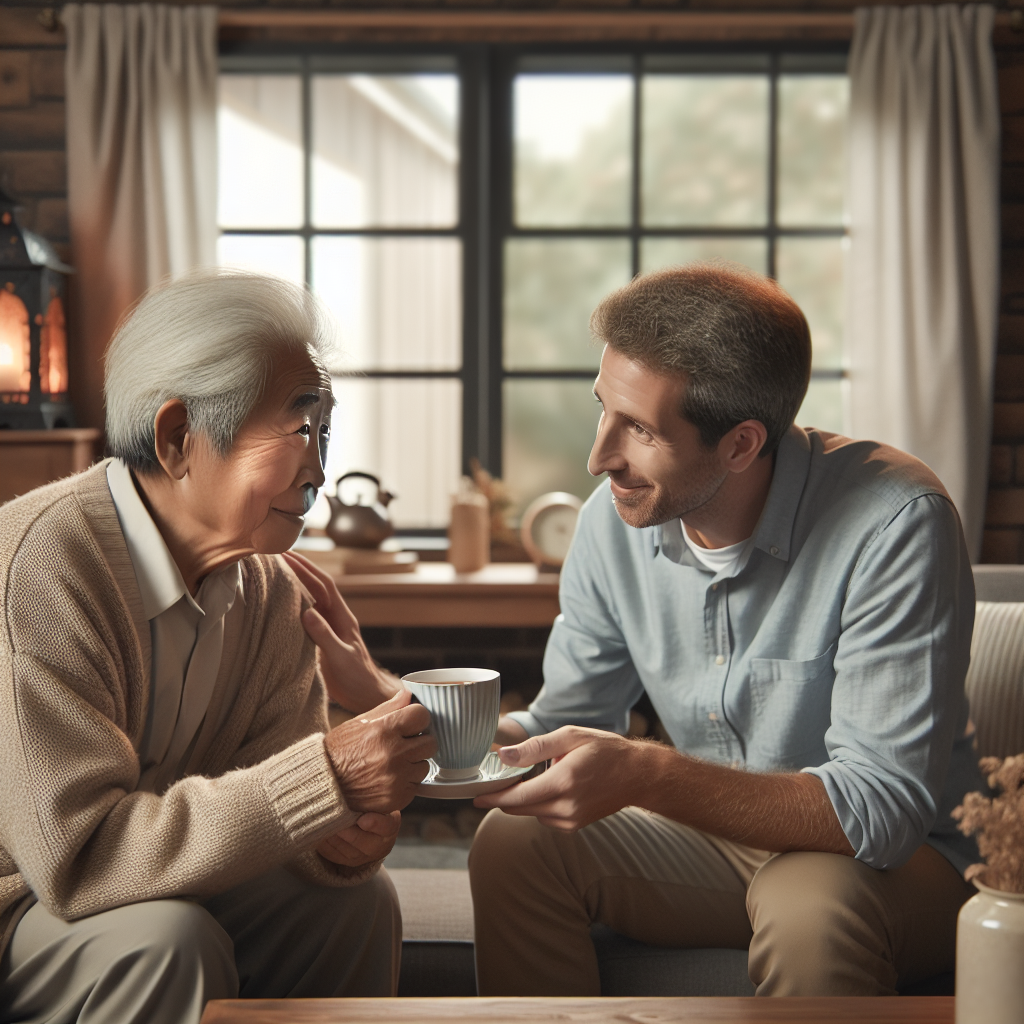The Ultimate Guide to Companionship Care: More Than Just Company
Introduction
Welcome to the world of companionship care, where the magic of human connection meets the practical needs of our aging loved ones. Imagine this: your elderly parent sitting alone in their cozy living room, sipping tea and reminiscing about the good old days. Now picture a friendly face popping in to share stories, play a game, or simply enjoy a cup of tea together. That’s what we’re talking about more than just company; it’s about enriching lives!
As we dive into this ultimate guide, we’ll explore how elderly companionship isn’t just an add-on but a vital part of aging care support. It’s about providing emotional support for seniors and combating loneliness with engaging activities and quality time.
In-home companionship offers more than just a friendly presence; it opens doors to new experiences and socialization for seniors. Think of it as a bridge connecting them to the vibrant world outside their front door a world filled with laughter, friendship, and even some light-hearted mischief!
Throughout this guide, we’ll unravel the various aspects of companion care services, from understanding its importance to choosing the right service for your loved one. We’ll also touch on how families can play an active role in supporting these services. So grab your favorite beverage, settle in, and let’s embark on this journey together!
Understanding Companionship Care
So, what exactly is companionship care? At its core, it’s all about providing social support for aging adults who might be feeling a little lonely or isolated. Think of it as having a buddy system for seniors, where the focus is on companionship rather than medical needs. This type of care can be crucial in improving the quality of life for the elderly.
Imagine your grandma sitting at home, flipping through her favorite photo albums but wishing someone would join her for a chat. That’s where senior companion services come into play! These services offer not just company but also emotional support, helping to combat feelings of loneliness and depression.
Did you know that nearly 43% of seniors report feeling lonely? This statistic highlights the importance of companionship care in fostering connections and enhancing well-being among elders.
The Importance of Companionship for Seniors
The significance of companionship for seniors cannot be overstated. It’s not just about passing the time; it’s about creating meaningful interactions that can lead to improved mental health and emotional well-being. Socialization for seniors is vital, as it helps maintain cognitive functions and reduces feelings of isolation.
Distinction Between Companionship Care and Other Types of Care
Now, let’s clear up some confusion: companionship care is not the same as personal care or medical assistance. While personal care focuses on daily living assistance like bathing or dressing companionship care emphasizes building relationships and providing social engagement. It’s like comparing apples to oranges; both are essential but serve different purposes in the realm of elderly friendship programs.
In-home companionship allows seniors to remain in their own homes while receiving vital social support. This can include engaging conversations, participating in hobbies together, or even just sharing a meal. It’s all about those moments that make life richer!
The Benefits of Companionship Care
When we think about companionship care, it’s easy to imagine just someone sitting next to an elderly person, sharing a cup of tea and reminiscing about the good old days. But oh, my friend, it’s so much more than that! This type of care is like a warm hug for the heart and mind, providing a treasure trove of benefits that can significantly enhance the lives of seniors.
- Emotional Support for Seniors: Companionship care offers a vital emotional lifeline. Having someone to talk to can help seniors navigate the rollercoaster of feelings that often accompany aging. Whether it’s sharing stories or just having a listening ear, this support fosters a sense of belonging.
- Loneliness Prevention in Seniors: Did you know that loneliness can be as harmful as smoking 15 cigarettes a day? Yes, you read that right! Companion care acts as a buffer against isolation, ensuring your loved ones have regular social interactions and preventing the dreaded loneliness.
- Enhanced Quality of Life Through Socialization: Engaging in social activities is like giving seniors a fountain of youth! With companionship care, they are encouraged to participate in senior social activities, from game nights to arts and crafts. This not only boosts their mood but also keeps their minds sharp!
- Impact on Mental Health and Cognitive Function: Studies show that regular interaction with companions can improve cognitive function and even reduce the risk of dementia. Think of it as mental gymnastics keeping those brain cells fit and fabulous!
Key Takeaway: Companionship care is not just about having someone around; it’s about enriching lives through emotional support, socialization, and cognitive engagement. It’s compassionate care services wrapped in friendship for elders.
Types of Companionship Services Available
When it comes to companionship care, there’s a buffet of options to choose from, each serving up something unique for our beloved seniors. Let’s dig into the delightful menu of services designed to enrich their lives!
-
In-home companionship services
Picture this: your loved one sipping tea in their favorite chair, while a friendly companion engages them in conversation or plays a game of cards. In-home companionship services provide just that! These professional companions visit seniors at home, offering emotional support and social interaction without the need for medical expertise.
-
Elder companionship programs and groups
Think of these programs as the social clubs for seniors! These groups often organize activities such as arts and crafts, book clubs, or even dance parties. It’s all about creating a community where seniors can connect, laugh, and build friendships because who doesn’t love a good dance-off?
-
Daily living assistance combined with companionship
This service is like two-for-one special at your favorite diner! Not only do these companions help with daily tasks such as meal preparation or light housekeeping, but they also provide that much-needed social interaction. It’s about ensuring that seniors not only live but thrive in their own homes.
-
Professional companions for seniors vs. family-like companions
You might be wondering: should I hire a professional or rely on someone who feels like family? Professional companions are trained to provide compassionate care services while maintaining boundaries. On the other hand, family-like companions bring familiarity and warmth but may lack formal training. Both have their perks; it ultimately comes down to what feels right for your loved one!
Key Takeaway: The right type of companionship care can significantly reduce feelings of loneliness and enhance the quality of life for seniors. Evaluate options based on emotional support needs and daily living assistance requirements.
How to Choose the Right Companion Care Service
Choosing the right companion care service for your loved one can feel like searching for a needle in a haystack if that haystack was also full of emotional baggage and high expectations. But fear not! With a bit of insight and the right questions, you can find a service that not only meets your needs but also brings joy and companionship to your aging parent or relative.
Assessing the Needs of Your Loved One
Before diving into the sea of options, take a moment to consider what your loved one truly needs. Are they looking for just someone to share stories with over a cup of tea, or do they require assistance with daily living tasks? Each individual is unique, so understanding their specific requirements is key.
- Physical Assistance: Do they need help with mobility or personal care?
- Social Engagement: Are they craving companionship and social interaction?
- Emotional Support: Is there a need for someone who can provide emotional comfort during tough times?
Questions to Ask Potential Service Providers
Once you’ve mapped out their needs, it’s time to start interviewing potential companion care services. Here are some essential questions to get you started:
- What qualifications do your caregivers have?
- Can you provide references from other families?
- What kind of training do your companions receive in elderly companionship?
- How do you match companions with clients? Is there an emphasis on personal compatibility?
The Importance of Caregiver Qualifications and Training
A skilled companion is more than just a friendly face; they should have appropriate training in areas such as non-medical home care, daily living assistance for seniors, and even some basics of emotional support for seniors. Look for services that prioritize ongoing training and certification.
Cultural and Personal Compatibility Considerations
Your loved one’s comfort should be at the forefront. This means considering cultural backgrounds, interests, and personalities when selecting a companion. A shared sense of humor or similar hobbies can make all the difference in building a strong bond.
The right match can turn companionship into friendship for elders, making every visit feel like quality time rather than just another appointment.
A Common Misconception: It’s Just About Company
A lot of people think that companionship care is simply about having someone around. However, it’s much deeper than that! Quality companionship involves engaging conversations, shared activities like senior social activities, and providing emotional support tailored to individual needs.
Selecting the right companion care service takes time and effort but remember this decision is about enhancing your loved one’s life. By asking the right questions and considering their unique needs, you’ll be well on your way to finding supportive elder care services that truly make a difference.
Your Next Step: Start by jotting down what matters most to your loved one before reaching out to potential services. This will ensure you’re not only finding help but also fostering friendship for elders!
The Role of Family in Companionship Care
When it comes to companionship care, family plays a pivotal role that often goes unnoticed. Think of it as a three-legged stool: the senior, the caregiver, and the family. If one leg wobbles, the whole thing can topple over.
Supporting Companion Caregivers
Families can be the unsung heroes in this equation. They provide emotional backing to companion caregivers, ensuring that everyone is on the same page. Here are a few ways families can support these vital caregivers:
- Regular Check-Ins: Keeping communication lines open helps everyone feel involved and valued.
- Sharing Responsibilities: Family members can take turns visiting or assisting with care tasks.
- Providing Feedback: Constructive input can help caregivers tailor their approach to better fit the senior’s needs.
The Importance of Communication
A well-oiled machine requires good communication and so does companionship care. Families must ensure that there’s clear dialogue among all parties involved:
- Discussing Needs: Regular discussions about what works and what doesn’t can lead to improved care strategies.
- Emotional Support: Families should encourage seniors to express their feelings about their companions to foster a positive environment.
- Crisis Management: Open lines allow for quick action in emergencies or changes in health status.
Maintaining Family Involvement
The golden rule here is: out of sight should not mean out of mind! Maintaining family involvement in care plans can be both comforting for seniors and beneficial for caregivers. Here are some practical tips:
- Scheduling Regular Visits: Setting up a routine for family visits helps create consistency and familiarity.
- Participating in Activities: Join your loved one in social activities think bingo nights or arts and crafts to foster connections.
- Caring Together: Engage in caregiving tasks together; it’s a great way to bond and share responsibilities!
Elder Engagement Activities to Promote Socialization for Seniors
When it comes to companionship care, keeping our older loved ones engaged is key. Think of it as throwing a party in their minds one where everyone is invited, and the fun never stops! Here are some fantastic activities that can spark joy and promote socialization for seniors:
- Game Nights: Organize regular game nights featuring classics like bingo or card games. These gatherings can foster friendly competition and laughter, which are essential ingredients for emotional well-being.
- Art and Craft Sessions: Encourage creativity with painting, knitting, or scrapbooking. Not only does this promote fine motor skills, but it also serves as a beautiful outlet for self-expression.
- Book Clubs: Start a book club where seniors can discuss their latest reads. This not only stimulates their minds but also encourages social interaction through shared interests.
- Outdoor Activities: Take advantage of nature! Whether it’s a gentle stroll in the park or gardening, outdoor activities provide fresh air and opportunities to meet others.
- Cooking Classes: Cooking together can be both fun and educational. Share family recipes or try new cuisines while enjoying the benefits of teamwork!
The Role of Hobbies in Companionship Care
Hobbies play a crucial role in enhancing elderly companionship. They not only offer enjoyment but also help maintain cognitive function and emotional health. Imagine your loved one rediscovering a passion for painting or learning to play an instrument again it’s like finding hidden treasure!
Community Resources and Programs Available for Seniors
Many communities offer resources designed specifically for seniors looking for companionship. From local elder engagement programs to senior support services, these initiatives can be invaluable:
- Elder Friendship Programs: These programs connect seniors with peers to foster friendships through organized activities.
- Senior Interaction Programs: Many local organizations facilitate group outings, classes, and events tailored to seniors’ interests.
- Home Visits for Elderly Care: Some services offer home visits from trained companions who engage seniors in meaningful conversations and activities right at home.
Takeaway: Engaging seniors through various activities not only combats loneliness but also enhances their quality of life. Remember that the goal is to create connections whether through shared hobbies or community resources!
- < li >Ideas for activities that encourage interaction li >< li >The role of hobbies and interests in companionship care li >< li >Community resources and programs available for seniors li > ul > section >




